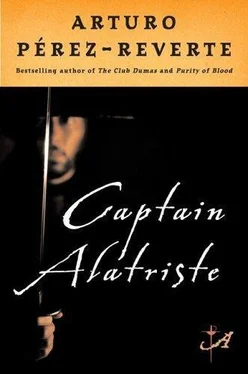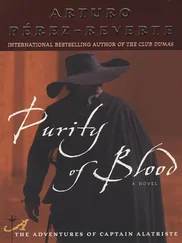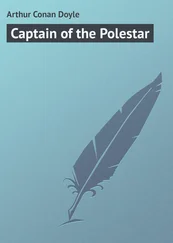Arturo Perez-Reverte - Captain Alatriste
Здесь есть возможность читать онлайн «Arturo Perez-Reverte - Captain Alatriste» весь текст электронной книги совершенно бесплатно (целиком полную версию без сокращений). В некоторых случаях можно слушать аудио, скачать через торрент в формате fb2 и присутствует краткое содержание. Жанр: Старинная литература, на английском языке. Описание произведения, (предисловие) а так же отзывы посетителей доступны на портале библиотеки ЛибКат.
- Название:Captain Alatriste
- Автор:
- Жанр:
- Год:неизвестен
- ISBN:нет данных
- Рейтинг книги:3 / 5. Голосов: 1
-
Избранное:Добавить в избранное
- Отзывы:
-
Ваша оценка:
- 60
- 1
- 2
- 3
- 4
- 5
Captain Alatriste: краткое содержание, описание и аннотация
Предлагаем к чтению аннотацию, описание, краткое содержание или предисловие (зависит от того, что написал сам автор книги «Captain Alatriste»). Если вы не нашли необходимую информацию о книге — напишите в комментариях, мы постараемся отыскать её.
Captain Alatriste — читать онлайн бесплатно полную книгу (весь текст) целиком
Ниже представлен текст книги, разбитый по страницам. Система сохранения места последней прочитанной страницы, позволяет с удобством читать онлайн бесплатно книгу «Captain Alatriste», без необходимости каждый раз заново искать на чём Вы остановились. Поставьте закладку, и сможете в любой момент перейти на страницу, на которой закончили чтение.
Интервал:
Закладка:
Is not to give a man his worth."
It was at that moment that one of the spectators standing beside us turned toward the captain and hissed at him to be quiet, although he had not said a word. I turned, surprised, and saw that the captain was staring intently at the man who had hushed him, a rough-looking individual whose cape was folded four times over one shoulder and whose hand was on the grip of his sword.
The play continued, and I was again drawn into it. Although Diego Alatriste was neither talking nor moving, the man with the folded cape again hissed at him, muttering in a low voice about people who had no respect for the theater or for letting other people hear. I felt the captain's hand, which was again resting on my shoulder, softly push me to one side, and I noticed that he pulled back his cape a little, to uncover the handle of the dagger in a sheath at his left side. At that instant, the first act ended, the public burst into applause, and the captain and our neighbor bored holes into each other with their eyes, though for the moment things went no further. There was one ruffian on either side, and, a short distance away, the other four, who kept us firmly in their view.
During the dance performed in the entr'acte, the captain caught the eye of Vicuna and Calzas and put me in their care, using the pretext that I could see the second Jornada better from where they were watching. There was a sudden burst of deafening applause, and we all turned toward one of the upper boxes, where people had recognized our lord and king, who had quietly entered at the beginning of the previous act. For the first time, I saw his pale features, the blond wavy hair that fell over his brow and temples, and the mouth with the prominent lower lip so characteristic of the Hapsburgs, still bare of the straight beard he would later adopt. Our monarch was dressed in black velvet, with a starched ruff and discreet silver buttons—faithful to the decree of austerity at court that he himself had just issued—and in his slender hand, so pale the blue veins showed through the skin, he casually held a chamois glove, which he occasionally put to his mouth to hide a smile or words directed to his companions.
Among these the enthusiastic public had recognized, besides several Spanish gentlemen, the Prince of Wales and Buckingham, whom His Majesty—though maintaining official incognito—had thought it well to invite; all wore their hats, as if the king were not present. The grave sobriety of the Spaniards contrasted with the plumes, ribbons, bows, and jewels of the two Englishmen, whose bearing and youth were greatly celebrated by the public, and the source of no few compliments, fluttering of fans, and devastating glances from the women's cazuela.
The second act began. As during the first, I sat drinking in the actors' every word and gesture. Yet just as Captain Fajardo was saying,
" 'Cousin' he calls her. I do not know
If this cousin is a true one;
But she is not the first young girl
To be falsely claimed a cousin,"
the swaggerer with the cape over his shoulder once again hissed at Diego Alatriste, and this time he was joined by two of the other four troublemakers, who had inched closer during the entr'acte. The captain himself had played the same game more than once, so to him what they were doing was as clear as water, especially considering that the two remaining swashbucklers were now elbowing through the mosqueteros.
The captain looked around to assess the situation. It was significant that neither the magistrate nor the bailiffs who usually imposed order during performances were anywhere to be seen. As for other help, Licenciado Calzas was not a man-of-arms, and the fifty-year-old Juan Vicuna could not do much with just one hand. Don Francisco de Quevedo was two rows ahead of us, focused on the stage and unaware of what was brewing behind him. And the worst of it was that some of the public, influenced by the hissing of the provocateurs, began to scowl at Alatriste as if he truly were disturbing the performance. What was about to happen was as obvious as two and two make four. Or in that specific case, three and two make five. And five to one was too much, even for the captain.
Alatriste tried to ease toward the nearest door. If forced to fight, he could do so more freely outside than inside the theater, where in the time it takes to breathe "Jesus!" he was going to be stitched like a quilt by daggers. There were two churches nearby, where he could find sanctuary if the law intervened in time. But since the unholy five were already closing in, the business was taking an ugly turn.
That was the situation as the second act ended.
Applause resounded, and the insults of the miscreants grew louder. Now the rabble began to chime in. Words were exchanged, and the tone heated up.
Finally, between oaths and "By my lifes," someone uttered the word "blackguard." Then Diego Alatriste sighed deeply, down to his toes. That sealed it. With resignation, he gripped his sword and withdrew steel from scabbard.
At least, he thought fleetingly as he bared his blade, a couple of those whoresons would accompany him to Hell. Without even setting himself firmly, he cut a swath to the right to drive back the nearest ruffian, and reaching back with his left hand, he pulled the vizcaina from where it was sheathed over his kidneys. People around him scrambled to get out of the way, women in the cazuela screamed, and the occupants of the boxes leaned over the railing to see better. It was not unusual at that time, as I have said, for the entertainment to shift from the stage to the yard, so everyone settled in to enjoy a bonus performance; within moments, a circle had formed around the contenders.
The captain, sure that he could not long defend himself against five armed and skillful men, decided not to concern himself with the fine points of fencing; the best way to maintain his health was to impair that of his enemies. He took one stab at the man with the folded cape, and without stopping to see the result—which was not significant— he stooped low, hoping with his vizcaina to cut the hamstring of another opponent. If you do the arithmetic, five swords and five daggers add up to ten weapons slicing through the air, so the stabs and thrusts were raining down like hail. One came so close that it cut a sleeve of the captain's doublet, and another would have gone through his body had it not become tangled in his cape. Attacking right and left with coups and moulinets, Alatriste forced two of his adversaries to retreat, parried one with his sword and another with his knife, then felt the cold, sharp edge of a blade being drawn across his head. Blood streamed down between his eyebrows.
You are fucked, Diego, he told himself with a last shred of lucidity. This is it. And it was true, he felt exhausted. His arms were as heavy as lead, and he was blinded by blood. He raised his left hand, the one with the dagger, to swipe the blood from his eyes, and saw a sword pointed toward his throat. And in that same instant he heard Don Francisco de Quevedo yelling, "Alatriste! He's mine! He's mine!" in a voice like thunder. He had leaped from the benches to the barrier, and interposed his sword, blocking the deadly thrust.
"Five to two is a little better!" the poet exclaimed, sword raised, with a happy nod to the captain. "We have no choice but to fight!"
And in fact, he fought like the demon he was, Toledo sword tight in his grip, and completely unimpeded by his lameness. Undoubtedly verses and figures for the decima he would compose if he came out of this alive were racing through his mind. His eyeglasses had fallen to his chest and were dangling from their ribbon near the red cross of Santiago; he was sweating hard, ferociously venting the bile that he usually reserved for his verses but that on occasions like this he expressed with the point of his sword. His dramatic and unexpected charge subdued the attackers, and he even succeeded in wounding one of them with a good thrust that went through the band of the man's baldric and into the shoulder. Recovering from their shock, the attackers regained their focus and closed in again, and the battle continued in a whirlwind of steel. Even the actors came out on the stage to watch.
Читать дальшеИнтервал:
Закладка:
Похожие книги на «Captain Alatriste»
Представляем Вашему вниманию похожие книги на «Captain Alatriste» списком для выбора. Мы отобрали схожую по названию и смыслу литературу в надежде предоставить читателям больше вариантов отыскать новые, интересные, ещё непрочитанные произведения.
Обсуждение, отзывы о книге «Captain Alatriste» и просто собственные мнения читателей. Оставьте ваши комментарии, напишите, что Вы думаете о произведении, его смысле или главных героях. Укажите что конкретно понравилось, а что нет, и почему Вы так считаете.










